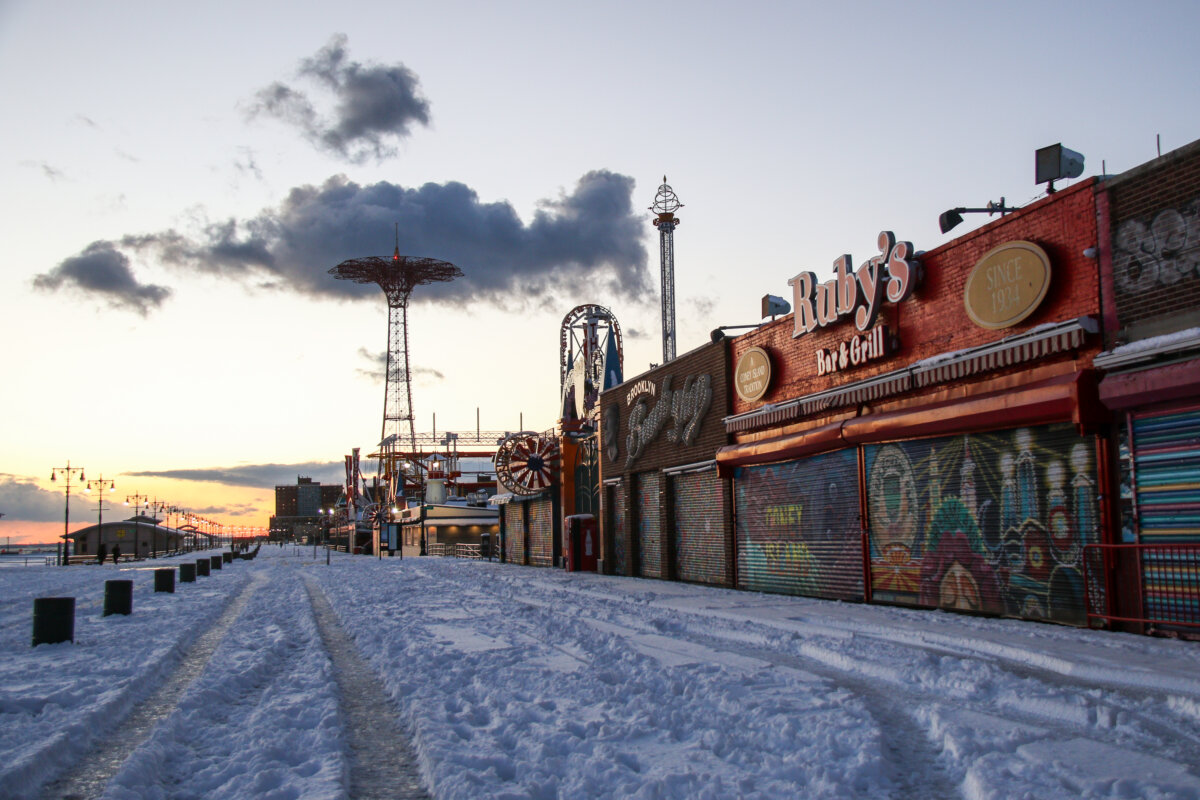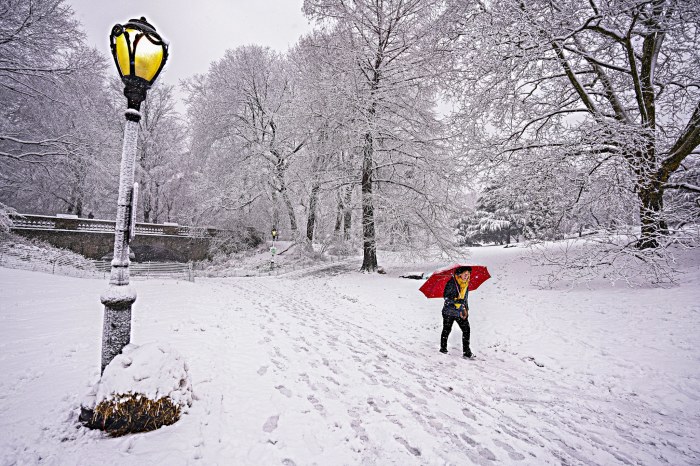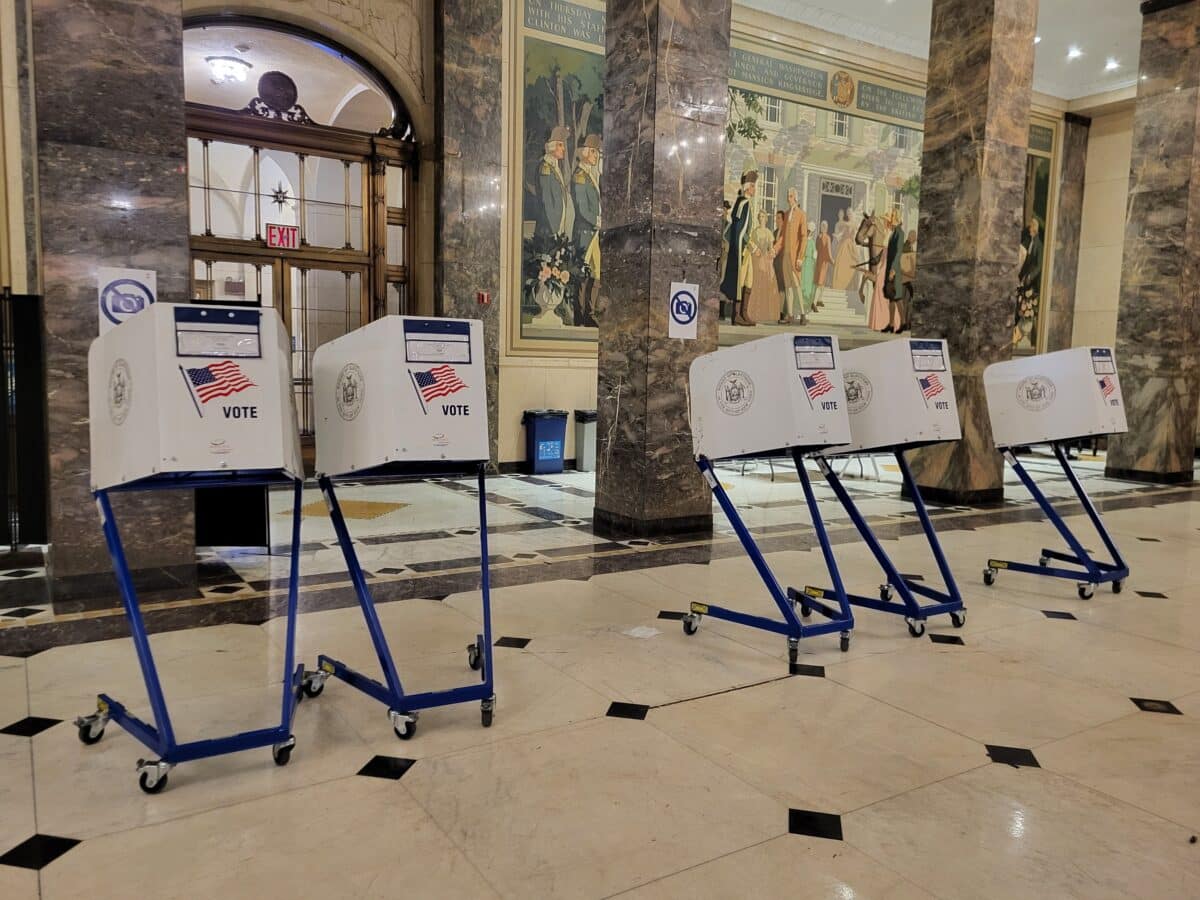New York City’s long streak without an accumulation of snow hit 700 days on Sunday, after a very brief snow squall proved too inconsequential to stick the landing.
The city issued a weather alert Sunday for afternoon snow squall conditions that would threaten visibility, and Mayor Eric Adams advised New Yorkers to stay inside and especially stay off the roads if possible. In the morning, the Sanitation Department spread salt along the city’s roads in areas prone to icing, said Hizzoner.
Considerable amounts of snow started to fall rapidly at around 1 p.m., but the flurry was over within a half-hour without any significant accumulation on the ground. By 3 p.m., the city was seeing sunny blue skies again.
The city’s Emergency Management department lifted its weather alert at 3:30 p.m., though noted that a wind advisory remained in effect.
Forecasters says the mercury will take a considerable dip; temperatures will struggle to get above the 32º freezing point this week, according to the National Weather Service — and there’s a chance for snow again on Tuesday. As of Sunday afternoon, the NWS says one to two inches of fresh snow is “possible” Tuesday — enough to potentially break the snow drought.

Sunday marked exactly 700 days since at least an inch of snow last accumulated on New York City ground, all the way back in February 2022, meaning the city’s children have gone a winter-and-a-half without sledding or building a snowman. That’s the city’s longest snowless streak since 1869, when record-keeping began.
A landmark study published last week found a link between lack of snowfall in the northeast and climate change, suggesting snow will become even more of a rarity going forward in the Big Apple, which was recently reclassified as a “humid subtropical” climate. The Hudson River basin has recently experienced some of the most dramatic declines in snowpack of any of the nation’s rivers.
Last January was the hottest New York had ever experienced, though it’s possible this month could give that record a run for its money.
Even as the five boroughs continue their snowless streak, upstate New York has experienced major winter storm conditions over the past few days. A lake-effect blizzard in the Buffalo area Sunday paralyzed travel there, and forced the postponement of the Bills-Steelers Wild Card playoff game to Monday afternoon.
Meanwhile, the city saw a deluge of rain this weekend that brought about an inch of water to bear, creating flood conditions in some neighborhoods.
Read more: Gunman’s failed attempt to shoot man sparks UWS investigation.



































